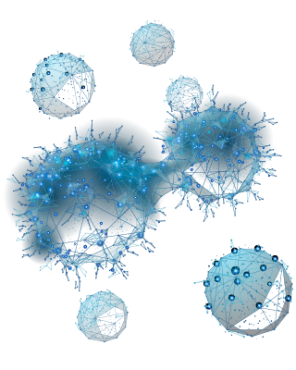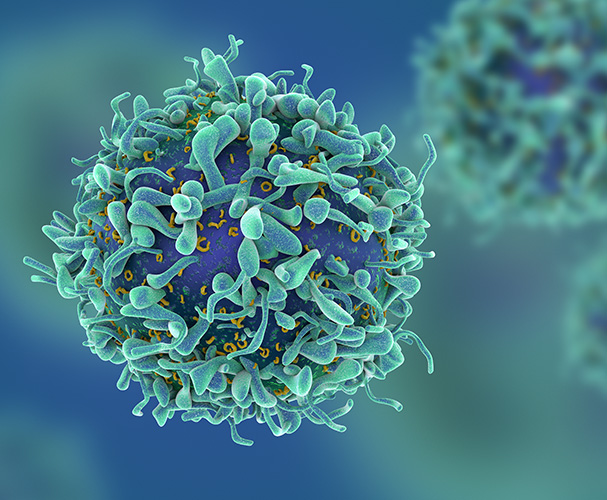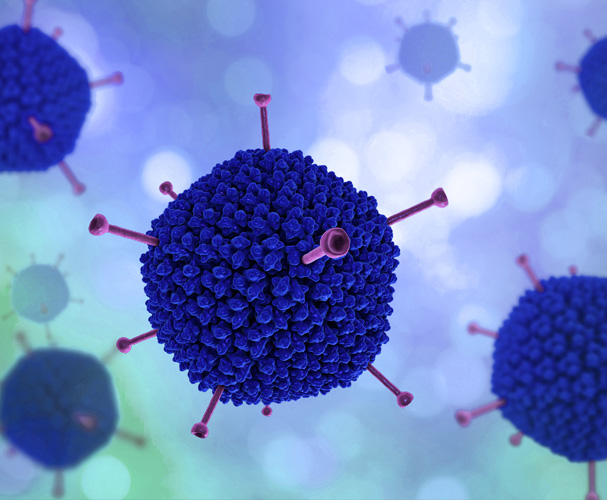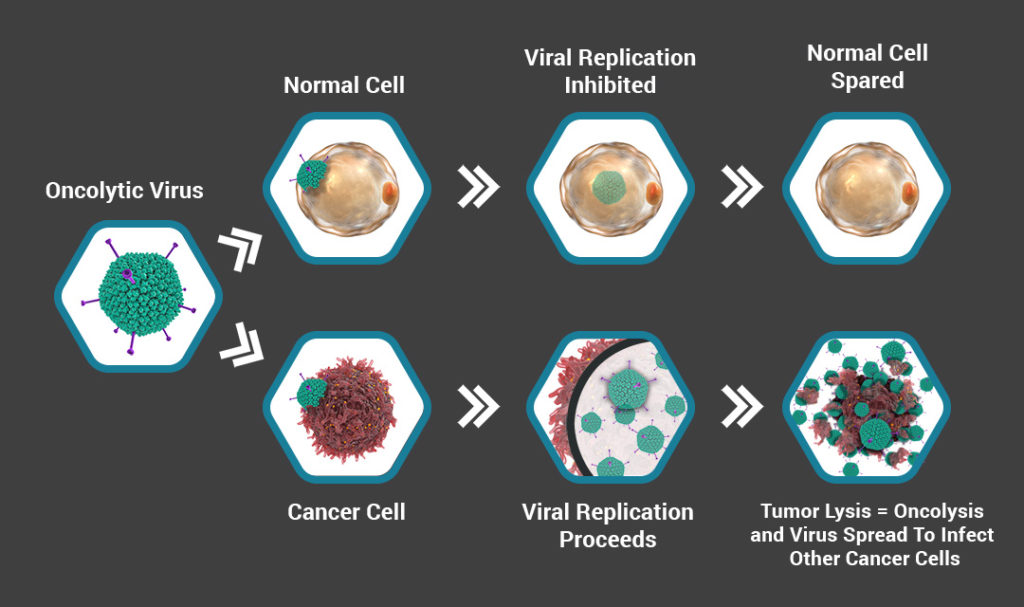The fight against cancer
The human body is complex and is made up of billions of cells each with their own role and set of codes, which divide and replicate.
Cancer cells are damaged cells that multiply uncontrollably. The body’s immune system does not normally detect the threat of cancer in order to eradicate it, which generally results in cancer cells spreading, making treatment via traditional methods more complex and at time less effective.


Current Treatments
Previously the medical community relied on the following four main methods of cancer treatment.
- Surgical
- Chemotherapy
- Radiotherapy
- Hormone therapy
Although the above cancer therapies (whether used exclusively or combined) can improve the chances of a patient survival, they are not always entirely effective and can result in significant side effects.
Common adenovirus
The first human Adenovirus was first isolated in 1953 from Adenoids in children. Adenovirus is a large family of viruses divided into eight sub families with over 65 different members.
Adenoviruses are non-enveloped viruses with a linear double stranded DNA genome. They possess unique spikes and fiber structures that aid in attachment to the host cell via the receptor on the sur-face of the host cell. Once infected the virus utilises the cell to replicate itself and spread (tumour lysis).

Ixovex our multimodality powerful oncolytic virus.
We have developed and patented a selectively replicating powerful oncolytic Adenovirus able to target and kill solid cancers and stimulate secondary immunological cancer fighting mechanisms, with minimal off-target effects.
Ixovex is a platform that will produce many different drugs. The patent covers the whole family of Adenoviruses and is a patent for the virus backbone allowing it to be armed with as many different genes to fight many forms of cancer.
Each family member has the potential to be modified and armed. If resistance/immunity arise to one member, another can be used.

Our selectively replicating oncolytic viruses are viruses with the ability to target only cancer cells sparing healthy surrounding tissue causing significantly less toxicity than other therapies (important in immune compromised patients).
Oncolytic viruses are excellent delivery vectors for secondary cancer fighting mechanisms through stimulating the body’s immune system to discover and fight the cancer (immunotherapy).

Ixovex is amenable to high titre production (can be produced in vast amounts in high concentration according to Good Manufacturing Practice standards).
- Allows application of concentrated therapy in small volumes.
Avoids cross resistance with other cancer mainstream therapeutics (e.g.radio and chemotherapy).
- Combining treatments might give synergy effects.
- Alternating treatments might circumvent resistance all together.
Can be safely manipulated to be armed with further targeted cancer drugs.
Many people have previously been exposed to Adenovirus and therefore carry antibodies against the virus. This might:
- Help in activating an anti-tumour immune response
- Mediate premature elimination of virus
It is a stable virus, hence it is resistant to aberrant genetic changes.
- Does not self-integrate into host chromosomes, hence no secondary cancer or other genetic diseases.
It has an impressive safety profile, being one of the most common human viruses causing only mild flu-like symptoms.
Our unique product
Ixovex is a patented oncolytic Adenovirus with a targeted mutation that confers a tested safety and efficacy profile on animal models carrying human cancer grafts.
Ixovex’s safety profile exceeds the only other existing oncolytic Adenovirus commercially available product, ONYX-015 (H101 in China).
Ixovex has also shown an efficacy that surpasses ONYX-015 several fold without compromising on safety.
- Ixovex will be armed with secondary anti-tumour therapeutic drugs mainly focusing on drugs that enhance the host immune response to cancer cells, for example (leading candidates):
- Anti-PD1 & Anti-PDL1
- IL-12 & IL-7
- Flt3l & GMCSF
Arming for an immune specific anti-tumour response
In addition to direct cancer cell killing by oncolysis:
- Ixovex infected tumour cells would secret interferons, molecules that warn the body about the ongoing infection and attracts immune cells. The lysed tumour cells would release tumour specific proteins (TSP)
Dendritic cells (master immune cells) in the tumour vicinity will:
- Recognise TSP and stimulate cytotoxic immune cells (tumour-specific) immune response that also remembers and protects against similar cancer in the future.
